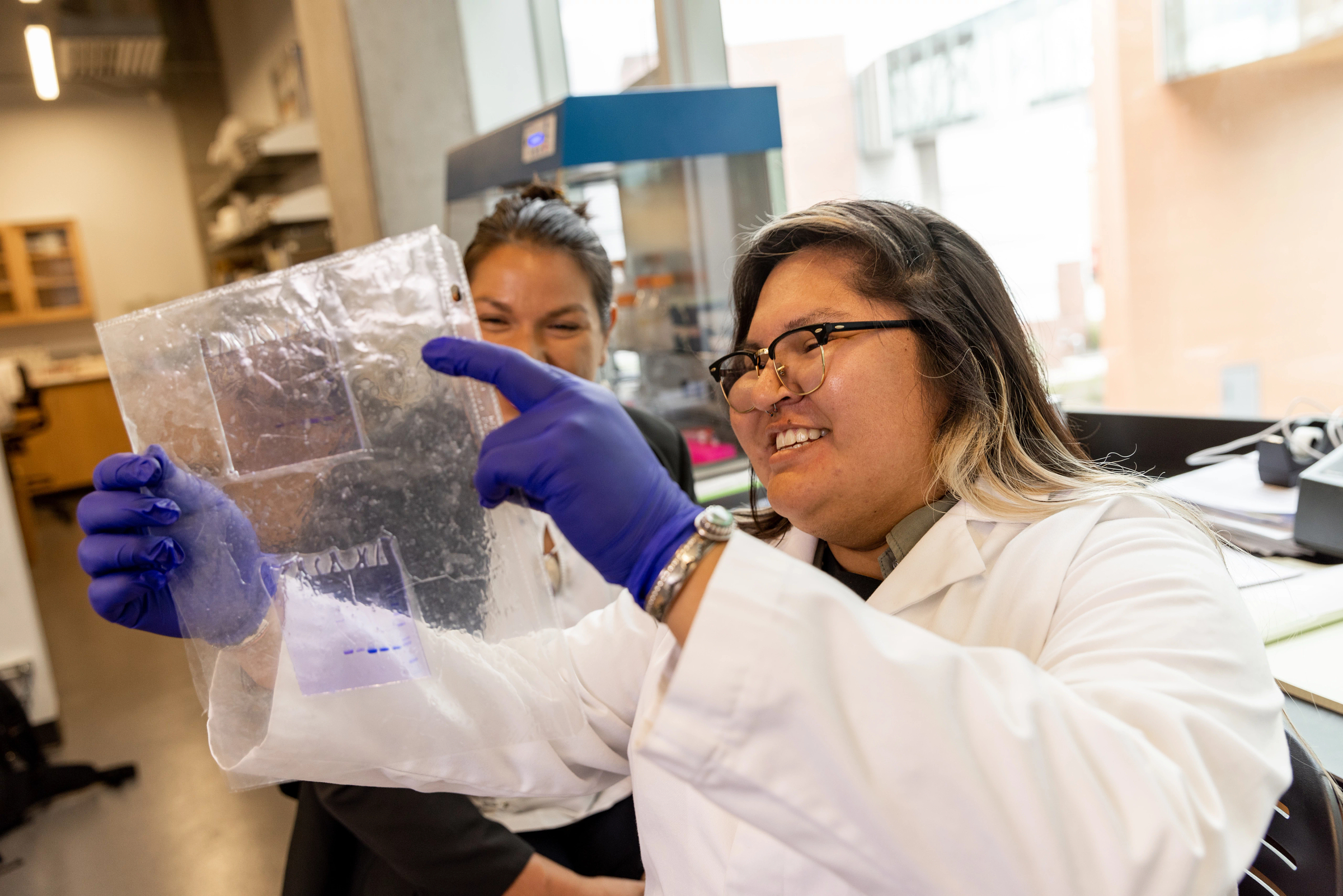SHERC successfully mentors more than 20 young investigators at NAU in 4 years

When new faculty members begin their careers, their first forays in the field can be difficult to navigate, especially when they begin to develop their first grant or to search for initial extramural support.
To mentor young Northern Arizona University investigators, the Southwest Health Equity Research Collaborative (SHERC), a grant-funded initiative of the Center for Health Equity Research (CHER), formed an Investigator Development Core more than four years ago with a simple, yet critical core mission –– to enhance the careers of NAU junior investigators who are working in specialized areas, such as disease impacts, public health conditions or access to care, that disproportionately impact diverse populations.
Since then, the IDC has mentored more than 20 young NAU investigators, investing more than $900,000 in direct costs for their work through its Pilot Project Program (PPP). The PPP has distributed four rounds of funding, with a fifth to be released during this spring semester.
Along with SHERC principal investigator and Regents’ Professor Julie A. Baldwin, director of CHER, IDC core leads include Anna Schwartz, professor in the School of Nursing, and Lynda Ransdell, professor in the Department of Health Sciences and CHER.
“A faculty’s first academic position is a critical time for mentoring,” Schwartz said. “During this time, mentoring young faculty is critical to their success and the success of NAU as an emerging top 200 research institution. It is exciting to see the successes of the faculty we have mentored. They are becoming highly productive and successful researchers. Their success reflects the support and mentorship of SHERC faculty and is key to growing the research initiative at NAU.”
The core has also offered young faculty chances to apply for financial grants, opportunities to meet with a grant writing expert to assist them with proposal preparation, and access to one-on-one mentorship with SHERC IDC experienced faculty.
Young NAU faculty from departments throughout the NAU campus have received IDC funding, including the schools of Forestry, Nursing, Informatics, Computing and Cyber Security, and the departments of Health Sciences, Chemistry and Biochemistry, Biological Sciences, and Anthropology.
Faculty mentoring
Ransdell, who has been a SHERC advisory committee member since its inception, was appointed as IDC Core co-lead six months ago.
She immediately continued her mentorship of junior faculty, offering them her wealth of knowledge and experience that she acquired throughout her career, especially as the dean of the NAU College of Health and Human Services, the associate dean of faculty affairs in the College of Health Solutions at Arizona State University, the dean of education for the Department of Health and Human Development at Montana State University, and the head of kinesiology at Boise State University.
Following her philosophy of enhancing physical activity and public health in underrepresented populations, Ransdell encourages young faculty to dedicate their own work to making a difference in their specialized fields.
“Our hope is to assist young faculty in a variety of disciplines to encourage collaboration and innovative thinking,” Ransdell said. “We want to mentor them to use their talents and strengths to address health disparities and to help them establish relationships with community-based organizations.”
Naomi Lee, an assistant professor in NAU’s Department of Chemistry and Biochemistry, is one of the innovative investigators who received Pilot Project Program funding July 2019 for her project, “Multivalent Display of HPV Antigens using Self-Assembling Peptides,” which works to find next-generation vaccines for the human papillomavirus that are more robust and provoke a strong immune response.
“SHERC was crucial to jump starting my research program at NAU,” Lee said. “As a young investigator, the PPP supported two undergraduate students that are instrumental in advancing the HPV vaccine research project. In addition, the PPP gave me the confidence to submit for additional extramural funding. I am very grateful for all the SHERC staff and mentors.”